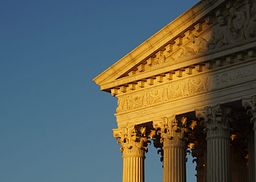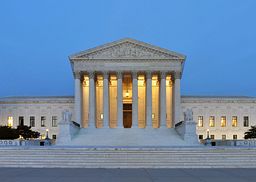Student-Led Social Justice Society Creates Community-Wide Change

It’s no secret that PA students are busy – often juggling work, educational pursuits, and even children and families. It speaks volumes when PA students make social justice efforts a top priority in the midst of their educational journeys. We recently had the honor of speaking with students from the Charles R. Drew University of Medicine and Science who are doing just that. Nicole Mueske and Beringia Liu, founders of the Social Justice Society, shared how the group has banded together to bring about community-wide change, make diversity, equity, and inclusion efforts accessible for their peers, and prove that everyone can make a difference.
Last year, the COVID-19 pandemic forced PA programs to shift to remote instruction overnight. Tight-knit cohorts were suddenly separated, disconnected, and hurting – particularly after police violence forced the country to confront its ongoing history of racial inequity. “CDU is a very diverse class, and it was weighing on everyone,” said Mueske. “Because of the pandemic, we weren’t there in person to see each other’s body language and ask classmates if they were okay. We had to become proactive in checking in with each other and starting conversations.”
These individual conversations led to broader class discussions, in which the students decided to craft a formal statement on the death of George Floyd. As conversations accelerated, the opportunity to create a formal society became clear.
The Social Justice Society was founded with the mission to proactively make a difference in the school’s community of Compton, California. “We have a direct vision to help our community, first locally, and then globally as we branch out and continue to do this work, focusing on health disparities and equity,” said Mueske.
In its first year, the society has made incredible strides, even with the unique challenges and safety measures required due to COVID-19. Since the society’s inception, members have collected almost 300 hygiene kit items for community members without housing, raised money to donate Thanksgiving meals, organized a toy drive, raising over $1,600 to provide more than 100 Christmas gifts for kids, provided 30 $25 grocery gift cards to community members, and sent over 600 handwritten letters to nursing home residents in Spanish and English.
The society has no plans to slow down in 2021. Current initiatives include continued fundraising through selling “PAs for social justice” t-shirts, a by-appointment clothing and houseware drive that will include blood pressure and glucose checks, as well as COVID vaccination education in both English and Spanish, a virtual pre-PA conference, a new pipeline program to connect with local high schools to share information on the PA profession – and finally – an art show addressing police brutality in conjunction with the CDU PA program’s 50th anniversary.
The Social Justice Society extends the reach of its advocacy efforts through social media outreach. Students from the Society post photos in which they finish the statement, “I show up for social justice and community because…” In each of these posts, the society tags other PA programs to encourage nationwide participation, while sharing educational information, resources, or action items. “In a way, it is each student’s opportunity to highlight their personal passions in reducing health disparities,” Liu said.
During Black History Month, the society will also use social media as a way to highlight Black-owned businesses to create awareness and support local Black entrepreneurs.
Mueske and Liu said they hope that the society’s efforts will spark action from other PA programs across the nation. “Showing up for social justice and community in LA looks different than what it looks like in New Orleans or in rural areas of the country, so we want to inspire people – not only PAs – to know that everything they’re doing matters,” Mueske said. “As long as you keep moving forward, as long as there is action behind your words, it all matters.”
Ultimately, the society hopes to serve as a reminder that all actions – big and small – make a difference. “Anybody can do this, and it matters that we do it,” Mueske said. “If you start taking action as a student, it gives you a different perspective on how you can contribute once you’re a provider. There are opportunities to advocate for justice on all fronts – in education, healthcare, at churches, in schools – so the sooner you start showing up for it and realizing that even small contributions matter, the better off we all are.” Liu added, “Everybody can show up in their own ways, and everybody’s own way matters.”




